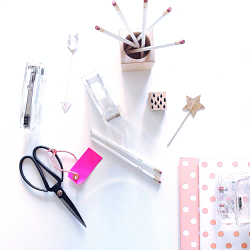Clutter can contribute to your household’s carbon footprint, and if you’re attempting to live a more green and/or carbon neutral lifestyle, you might want to have a good decluttering sometime soon!
So, the fact that clutter can increase the amount of carbon produced by your household needs a little more explaining. Let’s go through a couple of the main points below; if you want your home to be more environmentally conscious, even just donating to charity can be a great way to reduce your yearly carbon tons!

More Clutter Equals More Expenses
The more items you keep in your home, the more you’re going to have to pay to keep them there. You’re going to have to pay for their upkeep and maintenance, and you’re going to have to pay (in a variety of ways) to live and work around them. For example, you may think you need a larger home to cope with all of the clutter you currently own, and trying to find and secure a place like this can mean more emissions in the air from all the travel, and a lot of waste is generated by a move like this.
A cluttered house has to use more heat to keep it warm, and a higher temp on the air conditioner to keep it cool. More water is used day by day, and the energy efficiency rating slapped onto your house as a whole can sink drastically. Pipes and vents and even the underdraft of your door can be blocked by clutter, and that makes both your plumbing and your insulation work much less efficiently.

It’s time to find a way around this problem. One good way is to make use of a collective, publicly available secure, affordable storage unit. This could be a good way to offset some of the emissions your clutter helps you to produce, simply because it’s out of your home and being kept in a climate controlled area that more than one person turns to when clutter needs offloading.
Recycling is a Must
Now onto the main bulk of the decluttering work that’s ahead of you – learning to recycle better. If you’re going to be clearing out your rooms, you’ve probably got three boxes in front of you: keep, throw, donate. But when it comes to using that middle option, be sure to have separate bins for general waste and stuff that can be recycled.

Because when you recycle on a large scale like this, you’re going to be offsetting a good and healthy portion of your total carbon footprint, and it really is a habit you should throw yourself into full force. All kinds of items can make their way to a recycling center, so be sure to check your local regulations. There might be some materials on there you might now know!
Clutter can contribute to your carbon footprint, so it’s time to cut back. You’ve got the tools, now you’ve just got to commit.




































